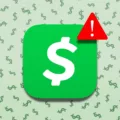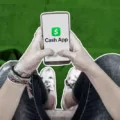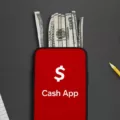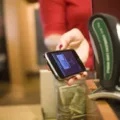Facebook, a social media giant, has been constantly evolving and expanding its services to meet the changing needs of its users. One of its latest ventures is the development of a new feature called Building 48 Cash App. This addition aims to provide users with a convenient and secure way to send and receive money within the Facebook platform.
Building 48 Cash App is designed to compete with popular peer-to-peer payment services like Venmo, Zelle®, and Cash App. By integrating this feature into Facebook, the company hopes to provide its users with a seamless experience, eliminating the need to switch between different apps or platforms to send money to friends and family.
With Building 48 Cash App, users can link their bank accounts or credit cards to their Facebook profiles, enabling them to easily transfer funds. This feature allows for quick and hassle-free payments, making it ideal for splitting bills, sharing expenses, or even sending money as a gift.
Security is a top priority for Facebook, and they have implemented various measures to ensure the safety of transactions made through Building 48 Cash App. Users’ financial information is encrypted and protected, and Facebook’s robust security systems continuously monitor for any suspicious activities or fraudulent transactions. In case of any fraudulent payment, Facebook promptly cancels it to prevent users from being charged.
In addition to its convenience and security, Building 48 Cash App also offers fast and reliable transactions. Once a payment is initiated, the funds are instantly transferred to the recipient’s Cash App balance or linked bank account. In case of any delays, the money should be available within 1–3 business days, depending on the user’s bank.
It’s worth noting that while Building 48 Cash App offers a convenient way to send and receive money, users should always exercise caution when accepting payments from unknown sources. Scammers may attempt to send fraudulent payments, so it’s important to be vigilant and report any suspicious activity to Facebook’s support team.
Facebook’s Building 48 Cash App is a promising addition to the social media platform, offering users a seamless and secure way to send and receive money. With its integration into Facebook, users can enjoy the convenience of peer-to-peer payments without having to switch between different apps or services. As Facebook continues to innovate and expand its services, it will be interesting to see how Building 48 Cash App evolves and enhances the overall user experience.
Will Cash App Refund Money If Scammed?
Cash App will refund your money if you have been scammed. In the event of a fraudulent payment, Cash App takes steps to cancel the transaction and prevent you from being charged. The funds from the fraudulent payment will be instantly returned to your Cash App balance or to your linked bank account. If the funds are not immediately available, they should be returned within 1–3 business days, depending on your bank’s processing time.
To ensure your safety and protect you from scams, Cash App has implemented measures to detect and prevent fraudulent activity. If you believe you have been scammed or have made an unauthorized transaction, it is important to report the issue to Cash App support as soon as possible. They have a dedicated team that can investigate the situation and assist you in recovering your funds.
Remember to always be cautious when dealing with financial transactions and sharing personal information. It is advisable to only transact with trusted individuals or entities and to verify the legitimacy of any requests or offers before proceeding.
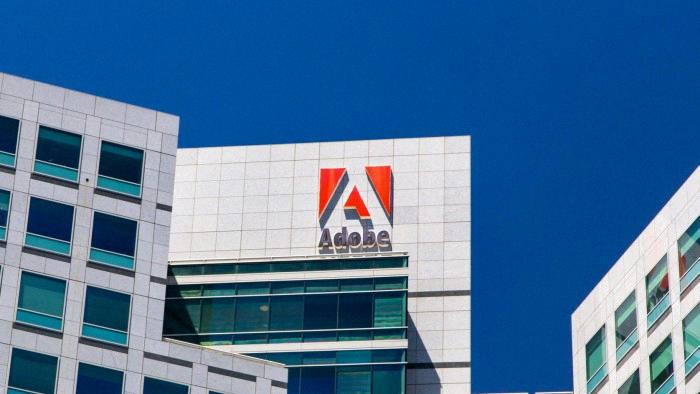
Is Cash App Owned By Facebook?
Cash App is not owned by Facebook. Cash App is actually owned by Block, Inc., a well-known company in the financial technology industry. Block, Inc. is an independent entity and is not affiliated with Facebook in any way. Cash App is a peer-to-peer payment service that allows users to send and receive money easily, and it has gained popularity for its simplicity and convenience. It is important to note that while Cash App and Facebook both offer payment services, they are separate companies with different ownership structures.
What If A Random Person Wants To Send Me Money On Cash App?
If a random person wants to send you money on Cash App, it is important to exercise caution and consider the following points:
1. Verify the person’s identity: Before accepting any money from a random person, ensure that you know and trust them. If you are unsure or unfamiliar with the sender, it is advisable to err on the side of caution.
2. Avoid sharing personal information: Do not share any sensitive personal information, such as your bank account details or social security number, with the random person. This information could be used for fraudulent purposes.
3. Be wary of scams: Scammers often use platforms like Cash App to trick unsuspecting individuals into sending them money. They may pretend to send you money as a way to gain your trust and then ask you to send some of it back. Be cautious of such requests, as they may be part of a scam.
4. Contact Cash App support: If you receive money from a random person and suspect that it may be fraudulent or suspicious, it is essential to report the incident to Cash App support. They can provide guidance and assistance in dealing with the situation.
5. Do not cancel the payment yourself: If you believe the payment is fraudulent, do not cancel it yourself. Instead, contact Cash App support and follow their instructions. Cancelling the payment without proper guidance could lead to complications or potential loss of funds.
Remember, it is always better to be safe than sorry. If something feels off or suspicious about a random person sending you money on Cash App, trust your instincts and take necessary precautions to protect yourself from potential scams.
Is It Safe To Use Cash App On Facebook Marketplace?
It is not safe to use Cash App on Facebook Marketplace. It is always recommended to use protective services such as PayPal and Facebook Checkout when making transactions on online marketplaces. Cash App, Venmo, and Zelle® are convenient peer-to-peer payment services, but they do not offer the same level of buyer and seller protection as other payment methods.
Here are a few reasons why it is not safe to use Cash App on Facebook Marketplace:
1. Lack of Buyer and Seller Protection: Cash App transactions are typically instant and cannot be reversed or disputed easily. In case of a fraudulent transaction or if the seller fails to deliver the promised item, it can be challenging to get a refund or resolve the issue.
2. Limited Dispute Resolution: Cash App does have a dispute resolution process, but it may not be as robust as services like PayPal or Facebook Checkout. Resolving disputes and getting a refund may take longer and require more effort.
3. Potential for Scams: Facebook Marketplace is known to have scammers who may try to take advantage of unsuspecting buyers or sellers. Using Cash App, which is not specifically designed for online marketplace transactions, can increase the risk of falling victim to scams.
To ensure a safer transaction on Facebook Marketplace, it is recommended to use payment methods that offer buyer and seller protection, like PayPal or Facebook Checkout. These services provide additional layers of security and dispute resolution mechanisms, making it safer for both parties involved in the transaction.
Remember to never give out private information to someone online that you’ve never met, and always exercise caution when making online transactions.
Conclusion
Facebook is a widely popular social media platform that has revolutionized the way we connect and interact with others. It offers a plethora of features and functionalities that allow users to share their thoughts, photos, and videos, as well as engage in meaningful conversations and stay updated with the latest news and trends.
Facebook also provides businesses with a powerful marketing tool through its advertising platform. With detailed targeting options and analytics, businesses can effectively reach their target audience and measure the success of their campaigns.
However, it is important to be mindful of the potential risks and privacy concerns associated with using Facebook. Users should take precautions to protect their personal information and be cautious of sharing sensitive data. It is also important to be aware of the presence of scams and fraudulent activities on the platform and report any suspicious behavior to Facebook.
Facebook has transformed the way we communicate and share information, but it is essential to use it responsibly and be aware of its limitations and potential risks.

